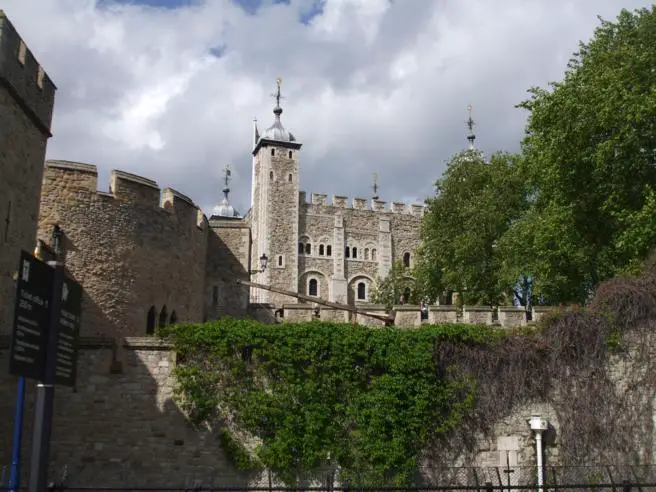Tamar’s Entry

 LIVE FROM TOWER GREEN: We are speaking to an eye-witness to today’s tragic event, Mr. John—oh wait, he doesn’t want us to print his last name for fear of repercussion. As you can see, he is even now wiping away tears. May I ask you, my good man, to describe your experience today?
LIVE FROM TOWER GREEN: We are speaking to an eye-witness to today’s tragic event, Mr. John—oh wait, he doesn’t want us to print his last name for fear of repercussion. As you can see, he is even now wiping away tears. May I ask you, my good man, to describe your experience today?
I’d no idea I’d feel so; to tell truth, I’d never thought highly o’ her, though I’d trouble believin’ anyone in her position would do such as they accused her of. I didna think to come at first, but somethin’ drew me, and I found a spot near enough the scaffold to get a good glimpse of her when she come out. So beautiful she was, wearing a gray dress and a cloak trimmed with ermine, look’d like a saint in a stained glass window, she did . . . Her ladies were taking on somethin’ fearful, they wept and wailed so, but she was calm as could be. I canna recall all she said, though I remember she began by sayin’ she’d come to die, not preach a sermon. She didna’ confess to anything, an’ that struck me; if she were guilty, why risk her immortal soul like that? She prayed God save the king—“no gentler nor a more merciful prince was there never”—I remember that bit well, for how she could say it with a straight face beats me. Then her ladies helped her take off her headdress—one of them gable ones—and her cape, and they gave her a white cap to put on; it was all spotless, and I went cold thinkin’ of all the blood that’d get on it. She knelt down, and I couldna’ see the rest so well; all of us were kneelin’ too, we’d done so when she begged us to pray for her at the end of her speech. Yet though I couldna see much, I could hear her loud and clear, saying over an’ over “O Jesu receive my soul, have pity on my soul.” I think a gentleman said somethin’ to her at one point; he warn’t wearing no mask, but he was the headsman they’d brought from Calais, ‘cause he tiptoed to one side of her, and on a sudden reached down into the straw and drew out a sword and swung—I saw a jet of red, and I couldna’ hear her voice no more. I was cryin’ as I watched those poor ladies carry her all the way to the church on the green, weepin’ sore, but not letting any help ‘em. The cannon boomed, and the chapel bell tolled, and I could taste the salt tears on my lips . . . Now I don’ want to get into trouble, but I canna help thinkin’, if she were guilty, how could she die like that?
By Tamar Heller
Sources
Mainly Eric Ives, The Life and Death of Anne Boleyn, pp. 357-59, and Alison Weir, The Lady in the Tower, from which I drew such details as John Husse’s note that “the spectators could not refrain from tears” (283) and the distress of the ladies in attendance (285), as well as the executioner’s apparent attempt to reassure Anne he would not strike until she was ready (285) and his coming up “stealthily” behind her to strike “suddenly” (285-86). Weir also points out that the swordsman did not wear a mask and his sword was concealed (280).